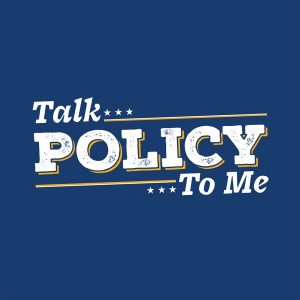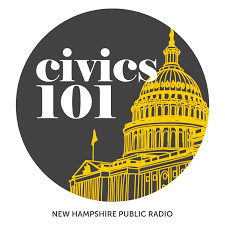
In Indonesia and Greece it is 17. In Austria, Brazil, Cuba, Nicaragua, and Argentina it is 16. These are the minimum voting ages in just some of the countries around the world. In the United States, the minimum voting age, as of 1971, is 18 years old.
For much of the United States’ history the minimum voting age was determined solely by individual states. In the early history of the U.S., the states required those voters to be white, male and at least 21 years of age. These requirements changed with the passage of the 14th Amendment to the U.S. Constitution. This amendment extended voting rights to black males 21 years or older and marked the first federal involvement in voting age requirements. It wasn’t until five amendments later, with the 19th Amendment, that voting rights expanded further, affording women, of at least the age of 21, the right to vote.
This 21 year minimum remained unchallenged for a number of decades since the 1910’s, but this threshold began to receive pushback as World War 2, and the U.S.’s involvement, heated up. In 1942, federal legislation lowered the military draft age from 21 to 18, opening the door to a new debate about voting age. In light of a growing movement for the minimum voting age to match the draft age, state and federal officials considered the merits of the move, but no federal action was taken, even with President Eisenhower’s support and the state of Georgia lowering the age to 18 in 1943.
Decades later the controversy found itself in the national discourse again as drafted soldiers were sent to fight in the Vietnam War. In 1970, the amended Voting Rights Act established a new minimum age to vote of 18. This new legislation was quickly challenged by a handful of states in the courts, and the case ultimately found itself in front of the Supreme Court. Later that year the Supreme Court, in Oregon v. Mitchell, ruled that the federal government had the power to legislate the minimum voting age, but only for federal elections, leaving all other types of elections to be determined by the states. The United States Congress, in light of the ruling, moved quickly to codify 18 years old as the minimum voting age through the passage of an amendment. After passing through both chambers of Congress in March of 1971, the 26th Amendment was officially ratified later that summer, declaring, “The right of citizens of the United States, who are 18 years of age or older, to vote, shall not be denied or abridged by the United States or any state on account of age”.
Since the early 1970’s a new debate around voting age has developed, specifically, to lower the voting age once again, this time to 16 years old. Though no state has made that change, some have afforded voting rights to people under 18 years of age. At least 18 states have given residents under the age of 18 the ability to vote in certain elections; typically the right is afforded to 17 year olds in primary elections who will be 18 by the time general elections are to be held. Recently, a U.S. Congresswoman proposed lowering the voting age to 16, but her bill failed to gain any significant support. This debate will no doubt continue, as folks 17, 16 and younger seek the ability to vote for their representatives.
This week’s Current Events resources examine the voting age in the United States. The resources shared provide historical context and information regarding the debate around voting age and when and how it has changed. To see additional resources, check out our initial Current Event on the topic.
Looking for more current events resources? Sign up at our We the Teachers Educator Resource Community page, where you can find all of our Current Events, and learn about our other programs!
Essential Questions, Vocabulary & Extend the Resources:
- What is the current legal voting age where you reside?
- What is the 26th Amendment?
- What are the reasons for lowering the voting age?
- What are the reasons for not lowering the voting age?
- What type of historical precedent is there for lowering the voting age? How did lowering the voting age happen in the past?
- What are some current barriers to expanding voting rights to younger Americans?
- In your opinion, what should the national voting age be and why?
Click here for a hardcopy of the Essential Questions & Lowering the Voting Age Vocabulary
Click here for a hardcopy of the Extend the Resources handout with suggested lesson activities and extensions
Videos:
Podcasts:
Talking 16 Year Olds and Voting, Talk.. Policy… To Me, May 7, 2020
The Story of the 26th Amendment, We The People, National Constitution Center, August 26, 2021
Why is Our Voting Age 18, Civics 101
Debate: Should 16-year-olds Be Allowed to Vote, Listenwise, NPR, October 16, 2020
Background Resources:
Voting at 16: Turnout and quality of vote choice, Markus Wagner, David Johann, Sylvia Kritzinger
Teaching the 26th Amendment, The New York Times
26th Amendment, Annenberg Classroom
Teaching the 26th Amendment, National Council for History Education
Resources, Vote16USA
Recent Articles:
Should 16-year-olds vote? New Mexico governor, secretary of state present voter rights agenda, La Cruces Sun News, January 6, 2022
Lawmakers hear testimony on lowering voting age in Northampton, Fox Daily Hampshire Gazette, June 23, 2021
Want to Increase Election Turnout? Lower the Voting Age to 16., The Nation, June 22, 2021
Maine bill aims to lower voting age to 16, 13 WGME, March 18, 2021
‘Andrew Yang proposes lowering NYC voting age to 16 and allowing green-card holders to vote in local elections
Crow relic’: A short history of the filibuster, Business Insider, May 18, 2021
House Defeats Effort to Expand Voting to 16-Year-Olds, The Wall Street Journal, Mach 3, 2021
Young Activist Pushes To Lower Voting Age To 16 As ‘The Logical Next Step’ For Gen Z, NPR, September 28, 2020
Recent Editorials:
The voting age should not be lowered to 16, The News Record, University of Cincinnati, October 28, 2019
Give young people the vote, The Hill, December 28, 2021
The Minimum Voting Age Should Be Zero, The New York Times, September 1, 2021
It’s Been 50 Years Since the Voting Age Was Lowered. It’s Time to Do it Again, Newsweek, July 3, 2021
Lesson Plans:
Should 16-year-olds be allowed to vote?, PBS News Hour Extra
Are 16-year olds mature enough to vote?, KQED Learning – The Lowdown
Old Enough to Vote, Upfront
Young Voters and Civic Participation, Citizen Advocacy Center
Are Teens Age 16 and Older Ready to Vote?, Youth Media Reporter
Should the voting age be lowered to 16?, C-SPAN Classroom Deliberations
Passage of the 26th Amendment, Center for Youth Political Participation, Rutgers University
Elementary Lesson Plans & Resources:
Opinion: Lower the voting age to 16 for federal elections?, Newsela
With teens more politically active, support grows for lowering the voting age to 16, Newsela
Youth drive push to lower voting age in Somerville, Massachusetts, Newsela
Media & News Literacy Lesson Plans:
Media Literacy Resources – Newseum
Resource Library – News Literacy Project
News & Media Literacy Lessons – Common Sense
Media Misinformation, Viral Deception, and “Fake News” – University of Wyoming
Evaluating Sources in a ‘Post-Truth’ World: Ideas for Teaching and Learning About Fake News – New York Times Lessons




